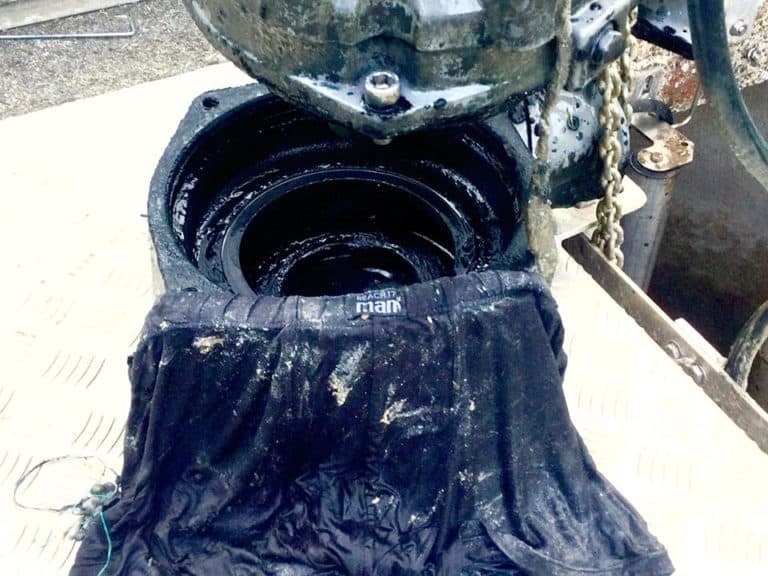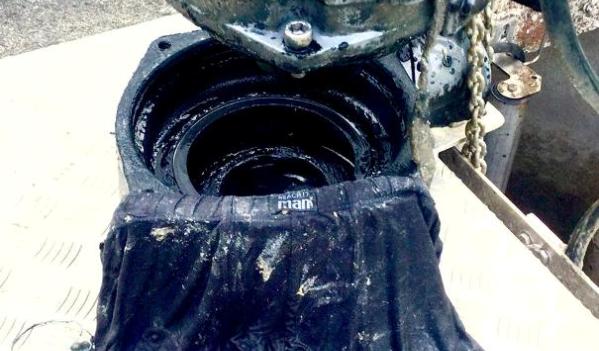Raglan’s wastewater system mainly operates on a gravity system with sewage running downhill to pump stations which pump the sewage to the treatment station. The pumps used are blocked frequently by rags, wet wipes and disposable nappies.

Waikato District Council, which owns and operates Raglan’s wastewater system, has an ongoing education programme aimed at stopping people putting these items down loos. Although the WDC say the “3 Ps only down the loo, Pee, Poo, Paper” campaign has been a success, the pump blockages continue. The most recent blockage in early February was caused by a pair of undies blocking the Nihinihi pump station. The local WDC service person is called out and has does a great job of clearing the blockages.
Raglanite John Lawson recently became aware that Auckland’s waste water operator is moving to a type of macerator pump that can chew up rags. John wondered that as Raglan has a very high number of visitors, with some only here for a night or two, if perhaps they didn’t understand the 3P’s, as back home in Auckland things are done differently with modern pumps.
John said, “I see Watercare in Auckland set this as their standard for pumps –
Pumps must be specifically designed for pumping wastewater with the ability to pass rags and solids without blocking etc. The ability to pass a solid sphere of 80mm diameter is a minimum guide. In catchments with particularly high loadings of rag then pumps with a chopping ability or some form of macerator may need to be considered: Watercare Standard.
Maybe WDC needs to adopt the same standard?
As it seemed a worthwhile suggestion that could reduce blockages and lower operating costs, I raised this with WDC.
My questions and the WDC answers from Acting Waters Manager Karl Pavlovich follow:
R23: Does Waikato District Council have any plans to replace the pumps at the low pressure pump stations in Raglan with macerator type pumps similar to the ones used in Auckland where there is a high rag content?
WDC: Low pressure pump stations at Whaanga Coast, Raglan are currently fitted with macerator pumps.
(This comment seems odd as the Whaanga Coast system is a high pressure system, although it does have macerator type pumps.)
R23: Are Raglan’s sewage pumps capable of passing a solid sphere of 80mm diameter without blocking?
WDC: No they aren’t.
Waikato District Council will continue with its public education campaign aimed at stopping people putting items such as underwear, rags and the like down their toilets. We see the benefit in changing behaviour in our communities district-wide, as the most effective way to combat a problem such as this is at its source.
Without the awareness of the effects of flushing anything apart from the 3 ps (pees, poos and toilet paper) there is ignorance in the public domain of what damage they can do.
By simply using macerator pumps you could also argue that you are creating another problem in that you will be chewing up rags and the like, not removing them, so you still have the negative environmental effects associated with these items.
John Lawson commented, “We see the benefit in changing behaviour in our communities district-wide” ignores the fact that a significant part of the Raglan community comes from places such as Auckland and is not here long enough to have behaviour changed by the current publicity. At the very least, the publicity needs to emphasise that WDC’s sewage system isn’t up to coping with what people do at home. I also wonder if they’ve done any costing? What is the extra cost of macerator pumps and what are the costs of dealing with blockages and their environmental harm?”


In June last year community board meeting I submitted a letter addressed to the Mayor and Executive about the same subject and provided a document on the use of Flygt N-Type impeller pumps as used in Rotorua. Rotorua district council had the same problem as Raglan with Rags fowling pump impellers. This was easily solved by using the correct type of pump. I never had any feedback from my letter nor from the content that I offered in my submission on the increased rates.
Ken Soanes
Perhaps after they’ve had few years to consider it, they’ll decide that what you suggested makes sense and finally do it. In the meantime we pay excessive rates.